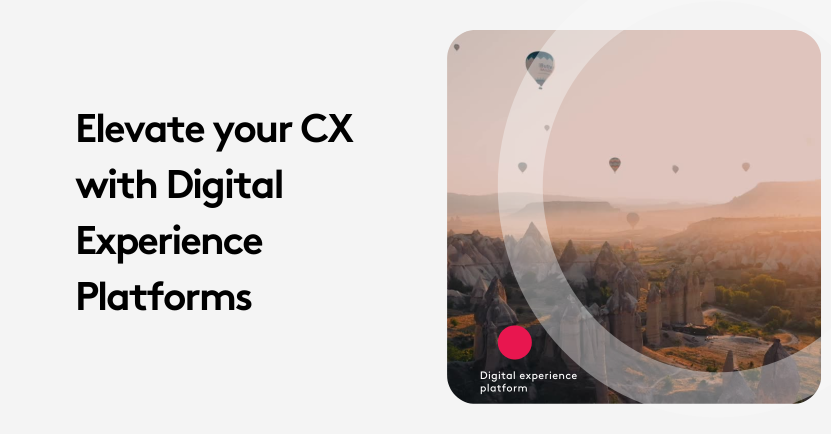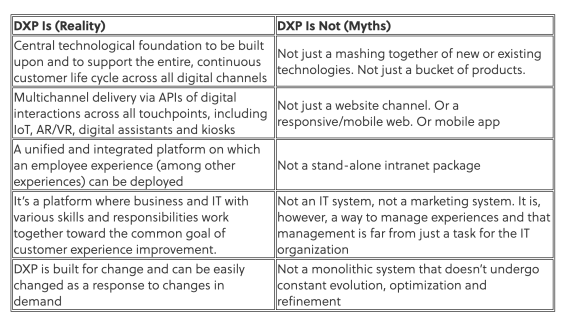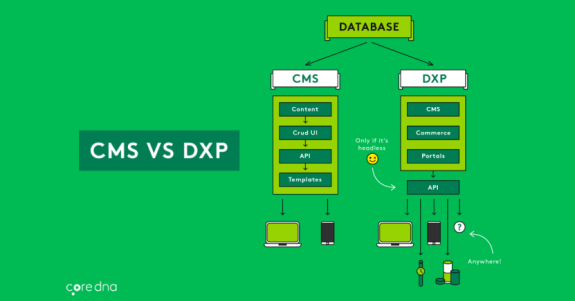Elevate Your CX with the Best Digital Experience Platforms

Digital experience platforms the future of digital marketing and we are totally into it!
First, if there’s one brand experience that I am personally obsessed with, it’s the smell of the One Hotel in NYC.
As a marketer, I’m always in awe of how they’ve contemplated every aspect of the branding, including the scent that is released in the air.
It’s a great example of how even the smallest details can make a difference.
But now that the customers’ interaction is mostly digital, how can we create an unforgettable experience like this?
How can we design unique and personal experiences that will be felt even in an environment where there are no physical senses?
It may take some effort, but it is not impossible. Thankfully, Digital experience platforms in conjunction with the best Generative AI tools are here to help.
Hyper-Personalization, predictions, and engaging content are available for digital marketers to use.
So as eCommerce is predicted to power 95% of purchases by 2040, don’t let your share of the pie remain untouched.
In this article, we will define what digital experience platforms are and how they can be used to enhance the customer journey.
Key takeaways
- Digital experience platforms are an integrated suite of tools to foster meaningful relationships by ensuring continuity across the full customer lifetime journey.
- A DXP can provide optimal digital experiences for your audience(s), including customers, prospects, and employees.
- Businesses can use a DXP to efficiently and effectively create, store, publish and optimize content for any channel.
- The Core dna DXP offers integrated data analytics tools to help you better understand customer behavior and grow your business.
- A Digital experience platform enables instant adoption of new channels and formats as they emerge.
On this page:
What is a DXP – Digital experience platform?
First things first, what is a digital experience platform? It is crucial to define digital experience platform to understand how they differ from other platforms.
DXP is a tool that assists businesses in identifying their audience, improving marketing strategies and increasing the conversion rate.
A DXP integrates many functions in one platform: content management, eCommerce, merchandising, analytics, A/B testing and more. With a DXP, all your data is in one place, which makes work easier and more effective and help create better customer experiences.
Customers want to be treated the same way no matter how they interact with your brand – in an app, on the website, or in a store. A digital experience platform (DXP) equips you with the data and tools to know your customer inside out, be agile, and successful.
It is a intentional marketing and eCommerce ecosystem. The Core Components of DXP that allow it to be a powerful platform are:
The Power of Website Analysis
Every digital experience strategy has to be supported by data, otherwise you’re essentially shooting in the dark. Digital experience analytics platform monitor users’ behavior on websites, mobile applications, and other platforms.
It helps marketers identify how your customers are consuming your content and the interactions they are having with your brand. Using the data to change your strategies will result in better marketing, higher conversions and loyal customers.
This is also useful because it also enables you to identify trends, behaviors and preferences which are useful in decision making.
Personalization Made Easy
AI powered DXPs offer hyper-personalization features that customize content and experience according to the user’s behavior and preferences.
Personalization has direct impact on the revenue of your business. It increases conversions through targeted marketing, reduced product returns and higher average order values.
A personalization can be as simple as showing product recommendations to a user based on their past browsing behavior or as sophisticated as the StitchFix AI algorithm.
The goal is to design meaningful and memorable experiences, and that is what digital customer experience platforms help you to do.
Connecting Touchpoints with Multichannel Integration
Customers journeys look like roller coasters and that’s ok because DXPs are here for it. From email to social media, your website and back to social media and SMS, you need to meet your audience everywhere they are.
The key is to ensure that the brand and the experience are constant across all the platforms. This is where multichannel integration comes in.
A digital experience platform (DXP) centralizes all your channels and assists in content delivery to ensure that the content is delivered consistently.
This is also important for eCommerce managers who need to optimize their marketing efforts to increase sales and productivity.
Intuitive Content Management System
Simplifying Content Management CMS is one of the building blocks of a strong digital experience platform. A flexible enterprise CMS will allow you to develop content quickly and share it on all channels seamlessly.
A CMS with features like – the ability to manage multiple sites, workflows, custom entities, and headless capabilities will support and scale your eCommerce efforts without the need to change platforms.
A digital experience platform provides you with the tools that enable you to test elements such as the website layout, content, and offers. You can then identify what is most effective for your audience and improve on it.

Why is Digital Experience Platform (DXP) the new cool kid on the block
1 - We live in a digital world
We’re in the midst of a massive increase in the volume of connected devices and digital channels in the world.
In 2025, the number of connected devices reached 21.5 billion and this number is expected to keep growing every year.
Businesses now need to deliver content to these devices, as well as to websites, email, mobile apps, customer portals, social media platforms, virtual and augmented reality devices, in-store retail kiosks, and more.
On average, people use nearly four devices, and connections en reroute to making a purchase.
Not only do businesses need to deliver content to each type of device and digital channel, but it’s also imperative to weave a seamless, integrated, and connected customer experience.
As companies work create more coherent and integrated digital customer experiences, more are embracing a Digital Experience Platform (DXP).
A digital experience platform enables the composition, management, delivery and optimization of contextualized digital experiences at each stage of the customer journey.
2 - The need for Digital experience platforms
The customers of the digital world, which you (reader) and I (Writer) represent, have expectations beyond anything that has been before.
The dexterity with which we switch devices, our capacity to carry different conversations with the same person, simultaneously on different platforms and the hours we spend on digital channels only heightens our the demand cohesive and personalized experiences across all digital touchpoints .
According to data from McKinsey, 71% of consumers expect companies to deliver personalized interactions, and an even higher percentage report being frustrated when this doesn’t happen.
A digital experience platform is an essential solution for business-to-consumer (B2C), business-to-business (B2B) and business-to-employee (B2E) dynamics.
The DXP architecture provides a fully integrated digital customer experience flowing seamlessly across channels and devices throughout the entire journey.
It forms the infrastructure of a digital business ecosystem by using APIs to integrate adjacent technologies, such as CRMs, commerce systems, and call centers.
Integrating these systems not only connects the experience across customer touch points but it also enables marketers and brands to create a deliver an omni-channel content strategy.

Top Digital Experience Platforms (DXPs) to Select
As more and more of organizations’ initiatives rely on delivering seamless, personalized cross-channel experiences, the right Digital Experience Platform (DXP) can make a big difference to your business results.
Here’s an overview of some of the main DXPs available on the market today, together with a brief on what they are, how they work, and what advantages and disadvantages they bring:
Adobe Experience Manager (AEM) Introduction:
Adobe digital experience platform which is a part of the Adobe Experience Cloud, is a solution that is perfect for any company that aims to combine the best of creativity and digital marketing.
It has gained fame for its capabilities in content management, personalization, and campaign optimization across various digital platforms.
Advantages:
- Integrated Adobe Ecosystem: Integrates well with other Adobe products like Photoshop, Analytics, and Marketing Cloud.
- Rich Personalization: Provides a high level of personalization through Adobe Target.
- Content Management: Good tools for managing digital assets and content across different platforms.
Disadvantages:
- Complexity: May have a fairly complex learning curve due to the fact that it has many features.
- Cost: Typically rather costly, which may be unfeasible for mid-sized or smaller businesses.
- Resource Intensive: Needs good hardware resources to work efficiently.
Liferay DXP
Liferay digital experience platform is a good example of a flexible, open source solution for those organizations that require a solution that can support both the B2B and B2C interactions.
It excels in the area of customization and integration with the existing environments.
Advantages:
- Flexibility: One of the most customizable due to the fact that it is an open source software.
- Scalability: Suitable for both small enterprises and international groups.
- Integration: Good integration with other systems and services.
Disadvantages:
- Complex Setup: Can be quite difficult to set up and configure without professional help.
- Documentation: Not all users are able to find proper instructions for certain tasks in the documentation.
- Community Support: Although there is a community, the level of support can be different from that of proprietary systems
Optimizely DXP
Optimizely is the DXP of choice for those companies that have optimization and personalization as their key strategies. It is for the marketers who want to work on hypothetical controls, learning and optimization based on real time data.
Advantages:
- A/B Testing: Excels in experimentation and A/B testing features. User-friendly: Famous for its ease of use for marketers.
- Personalization: Offers a good level of personalization.
Disadvantages:
- Pricing: Can be quite expensive, especially for the full version.
- Limited CMS: Excellent for experimentation, but its core CMS may not be as fully featured as other products.
- Integration: Some users have reported problems with integrating with existing infrastructure.
Acquia DXP
Acquia digital experience platform is based on the open source Drupal CMS and is for those who appreciate the community based development and customization. It is ideal for companies that want to expand their digital experience with a focus on personalization.
Advantages:
- Open-Source digital experience platform: Developed on Drupal, with many contributors and users in the community.
- Scalability: Highly adaptable to growing businesses. Personalization: Good personalization features with Acquia Lift.
Disadvantages:
- Complexity: The open source nature means that the configuration and management may be complicated for those who are not technical.
- Cost for Support: Although the platform is open source, the enterprise level support can be quite expensive.
- Dependency: Dependent on the Drupal development cycle for updates and new features.
Sitecore DXP
Sitecore is the solution of choice for organizations that want to integrate their digital experiences and offer content management, personalization and eCommerce in one place. It is particularly famous for its level of personalization.
Advantages:
- Omnichannel Experience: Very efficient in providing consistent experiences across various platforms.
- Personalization: Deep personalization is possible with its Experience Database (xdb).
- Comprehensive Suite: Includes marketing automation, eCommerce and content management systems.
Disadvantages:
- High Cost: One of the more expensive options, especially for small to medium-sized businesses.
- Learning Curve: Known for being difficult to learn and master.
Bloomreach DXP
Bloomreach digital experience platform leverages AI to push the boundaries of personalization and eCommerce integration. If your goal is to enhance customer engagement through data-driven insights, Bloomreach could be your match.
Advantages:
- AI-Powered Personalization: Uses AI for real-time personalization and content recommendations.
- eCommerce Focus: Strong capabilities for improving online shopping experiences.
- Data Insights: Provides deep data analytics for customer behavior.
Disadvantages:
- Cost: Premium pricing for its advanced features.
- Complexity: The AI capabilities require understanding to be fully leveraged.
- Dependence on Data Quality: Effectiveness heavily depends on the quality of input data.
Core dna DXP
Core dna provides an API-first platform for those who need flexibility and integration at the core of their digital strategy. It's tailored for businesses looking to deliver personalized experiences at scale with real-time analytics.
Advantages:
- API-First: Enhances integration with other systems through a strong API layer.
- Scalability: Designed for scalability across business sizes.
- Flexibility: With custom entities architecture, business cna build their own structure within Core dna
Disadvantages:
- Learning Curve: While flexible, mastering its capabilities might require time.
- Pricing: Better suited for mid-market and enterprise businesses.
The Importance of Digital Experience Platforms for Marketers and eCommerce Managers
Using the latest technology is the only way to gain a competitive edge in marketing and commerce. This is why Digital Experience Platforms (DXPs) are now essential for both marketers and eCommerce managers.
They bring many benefits that can change the way companies communicate with their customers.. It is not only about the increase in sales, but also creating impactful and personalized experience to build trust and loyalty.
1. Improving User Satisfaction and Engagement
I won’t spend too much time on customer satisfaction and engagement since I mentioned it several times already, but I couldn’t leave it off this list. Curation is just so important now, especially when people are inundated with ads and content, thanks to AI.
Bespoke experiences help users feel valued and understood, like they’re engaging with a sales associate at a store who genuinely cares about their problem and wants to provide a solution. When users feel special and important, they’re more likely to engage with your brand across multiple channels. Higher engagement contributes to higher conversion rates.
2. Improving Operational Efficiency
Have you ever struggled to find information or feel cross-eyed after jumping between a bunch of tools? Me, too. And likely, so has your team. Manually updating and coordinating data across different platforms means that something is bound to drop through the cracks. But, with a DXP, everything from consumer interactions to customer data is in one unified system.
Integrating all your systems together helps your team save time, reduce duplicate work, and make it easier to collaborate. It also makes it much easier to shift to changing business needs (like scaling content, managing customer interactions, or launching new campaigns). Saving time cuts overhead costs that can be reinvested in other business areas.
3. Better Decision Making
What’s your next move? It can be a big question, especially when budget constraints are involved. Here’s the thing, your customers are actively telling you what they want. By analyzing their interactions with your digital touchpoints, you glean invaluable insights into preferences, behaviors, and pain points.
With a DXP, all this information is in one place, giving you powerful knowledge to make strategic decisions that appeal directly to your consumer base.
4. Driving Customer Loyalty and Retention
Customer loyalty? Massive. Loyal customers equals repeat customers. Plus, customers who love your brand become your biggest advocates. No one is going to recommend your company to a friend after a bad experience.
As mentioned throughout this article, DXPs help businesses craft memorable, high-quality experiences for their customers. However, they can also streamline enticing loyalty programs and targeted promotions through marketing automation. This type of nurturing encourages repeat business and cultivates brand loyalty over time.
5. Omnichannel Consistency
Offline or online, your customers can get the same type of services and content across all your channels. This, in turn, creates a connected brand experience, which makes it easier for customers to interact with your brand on different platforms. If people can trust that your brand will deliver the same quality of service every time, no matter how they interact with you—loyalty and satisfaction will skyrocket.

Key Trends for Digital Experience Platforms
DXPs are on the precipice of a major digital transformation thanks to the synergy of emerging tech, changing customer expectations, and a more intense focus on data privacy. Here’s what you need to know about DXPs trends:
1. Enhanced Curation through AI and Machine Learning
If you’re not already using AI and ML to level up your user journeys you’re already behind. The ability to analyze gigantic amounts of data in real-time for hyper-personalized content will be a key differentiator.
2. Greater Emphasis on Omnichannel Experiences
I’m calling it now—the demand for a cohesive experience across channels will continue to take off. Future DXPs will have it all—websites, mobile apps, social media, in-store, you name it, they’ll have it.
3. Data Privacy and Compliance
Every day there’s a headline about a new data breach—and consumers are scared. Whether it’s the GDRP, CCPA, or a new data governance law tomorrow, DXPs will need to up their privacy and compliance to keep up with changing regulations and consumer calls for more data protections.
4. Advanced Metrics for Informed Decision-Making
Thanks to AI and ML, DXPs will become a mighty new tool for data-backed decision-making. Shifting to data-informed strategies will make businesses powerful contenders in their market, and revolutionize how customers interact with brands.
5. Integration with Emerging Technologies
There are so many cool, new technologies that can create heavy-hitting experiences for DXPs not to adapt. Whether it’s reality (AR), virtual reality (VR), and the Internet of Things (IoT), DXPs will have to integrate to help create immersive and innovative engagements with customers.
6. Focus on Customer Experience Management (CXM)
And finally, as more businesses recognize the benefits of tailored connections, DXPs are poised to transform into all-encompassing Customer Experience Management (CXM) solutions. What will this entail? Tools that assist with managing content and customer feedback, journey mapping, and experience upgrades across all touchpoints



